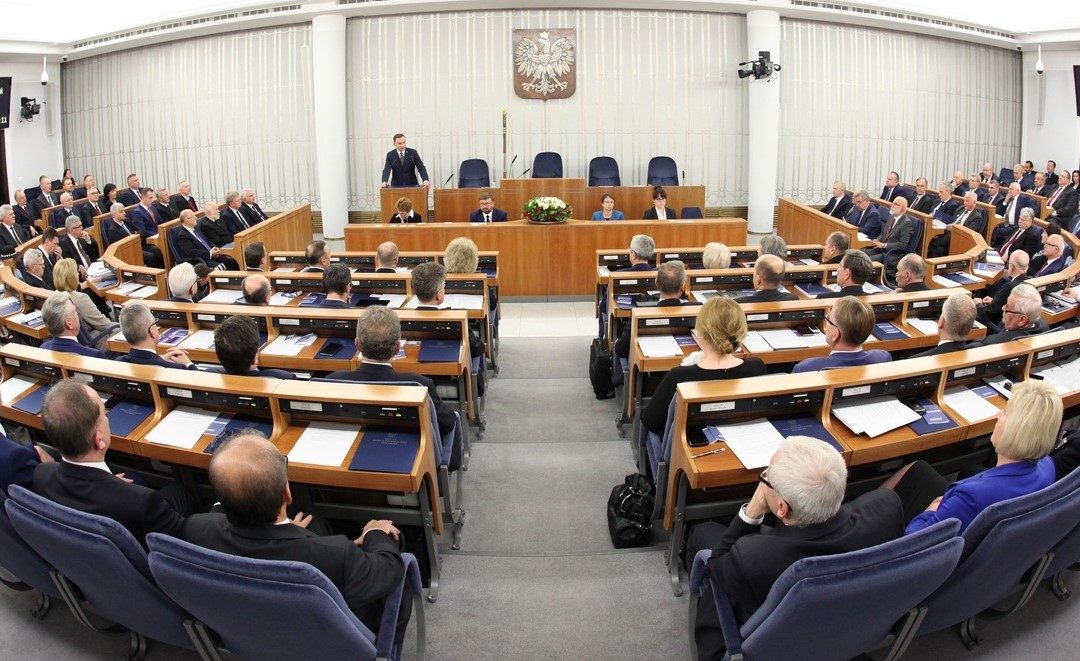The opposition’s candidate for Speaker of the Senate has been elected by a 51-48 majority, signalling that the opposition has enough votes to control the upper house of parliament. This will make it harder for the ruling Law and Justice (PiS) party to pursue its agenda.
At last month’s elections, PiS surprisingly lost its majority in the Senate. However, opposition senators did not have a majority either, meaning that the balance of power was held by a small number of independents.
It was widely believed that enough of the independents would side with the opposition to give them control of the house, and this has been confirmed by today’s election of Tomasz Grodzki, of Civic Platform (PO), as speaker.
“Ladies and gentlemen, senators, this is a victory of democracy”, said Grodzki, in a speech accepting the nomination. “This is a triumph, but not my own. I am accepting this function with humility and an enormous sense of responsibility.”
The Senate is much weaker than the lower-house Sejm, where PiS continues to have a majority. However, the Senate has the power to delay and scrutinise legislation, which will make it harder for PiS to push through laws in the manner that it did during its first term.
The Senate is also involved in making appointments for certain state positions.
Grodzki comes from Szczecin, a city in north-east Poland. He has been a senator since 2015. A former surgeon and head of one of Szczecin’s most important hospitals, in the opposition’s shadow cabinet he held the health portfolio.
In mid-October, just after the elections, Grodzki revealed he had been approached by a politician from the ruling camp, who tried to convince him to support PiS in the Senate in exchange for the post of health minister in the future government.
In an interview with Onet, Grodzki said that he did not know whether the idea came from the politician himself, or from somebody higher up in the party. Grodzki also said that “it was not the first time” such a thing happened.
In the last few days, further reports suggested that PiS had offered another opposition senator the position of sports minister in return for switching sides, as well as making offers to a number of other senators.
After the elections, PiS also submitted appeals to the Supreme Court for recounts to take place in six Senate races it had lost. Four of those have so far been rejected; the remaining two could still potentially swing the balance of power in the upper house.
Grodzki also said in his acceptance speech that inhabitants of his hometown make up a “unique mix” in Poland, and that with variety comes creativity. “The Senate is the emanation of the nation. We can have our differences, we can argue, but we have to remember that we are representing, as no other institution, the majesty of the commonwealth.”
Main image credit: Katarzyna Czerwińska/Wikimedia Commons (under CC BY-SA 3.0 PL)

Monika Prończuk is the deputy editor of Notes from Poland. She was previously the Nico Colchester fellow at the Financial Times, acting FT Poland correspondent, and journalist at OKO.press, an independent fact-checking media outlet. Her articles have appeared in Quartz, Financial Times, Politico, Gazeta Wyborcza and Tygodnik Powszechny.




















